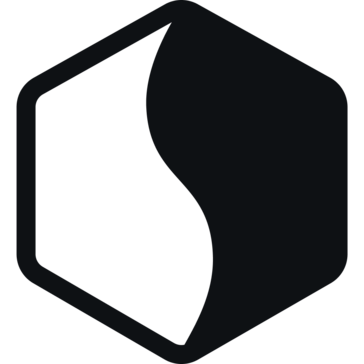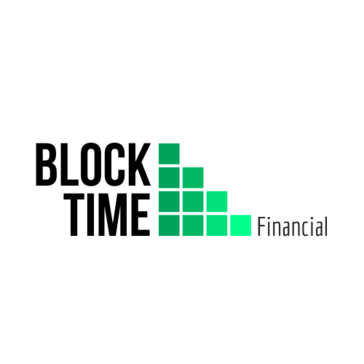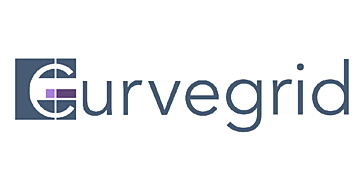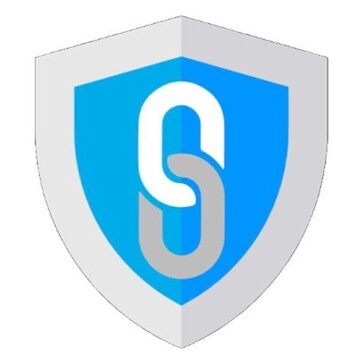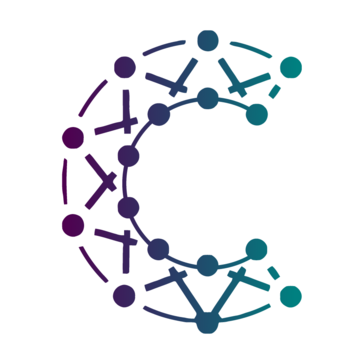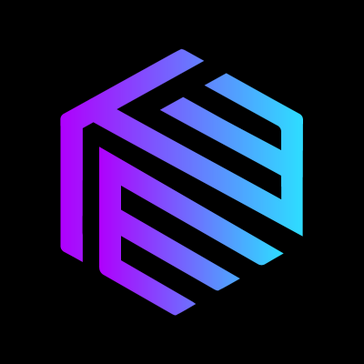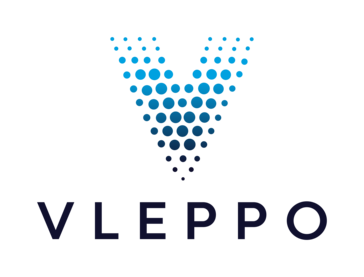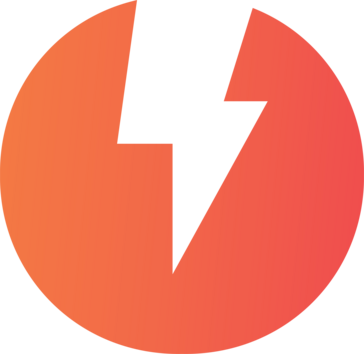Best Blockchain as a Service Providers
Best Blockchain as a Service Providers At A Glance
G2 takes pride in showing unbiased reviews on user satisfaction in our ratings and reports. We do not allow paid placements in any of our ratings, rankings, or reports. Learn about our scoring methodologies.
- Overview
- User Satisfaction
- Seller Details
Read, write, and build onchain with the world's fastest, most reliable infrastructure. Founded in 2017 by a group of passionate blockchain pioneers, the QuickNode platform is built on a foundation of
- Software Engineer
- Computer Software
- Financial Services
- 91% Small-Business
- 8% Mid-Market
45,382 Twitter followers
- Overview
- User Satisfaction
- Seller Details
Bison Trails is the easiest way to run secure infrastructure on multiple blockchains. Our technology platform provides enterprise-grade security, multi-cloud and multi-region distribution, and a 99.99
- 46% Small-Business
- 38% Mid-Market
6,504,960 Twitter followers
- Overview
- User Satisfaction
- Seller Details
Moralis provides high-throughput Web3 APIs for companies like MetaMask, Opera and Blockchain.com. Leading the market with the first NFT API, Moralis supports the most chains of any provider in the ind
- 75% Small-Business
- 25% Mid-Market
15 Twitter followers
- Overview
- Pros and Cons
- User Satisfaction
- Seller Details
Venly is a blockchain technology provider creating tools and products to help companies benefit from blockchain technology. We provide a complete technology stack to bring brands, apps, games and pla
- Information Technology and Services
- Accounting
- 59% Small-Business
- 41% Mid-Market
20,646 Twitter followers
- Overview
- User Satisfaction
- Seller Details
Amazon Managed Blockchain is a fully managed service that makes it easy to create and manage scalable blockchain networks using the popular open source frameworks Hyperledger Fabric and Ethereum.
- 56% Small-Business
- 25% Mid-Market
2,229,471 Twitter followers
- Overview
- User Satisfaction
- Seller Details
Blockchain is a shared , immutable ledger for recording the history of transactions. It fosters a new generation of transactional applications that establish trust , accountability and transparency-fr
- 55% Small-Business
- 36% Mid-Market
709,764 Twitter followers
- Overview
- Pros and Cons
- User Satisfaction
- Seller Details
Kaleido is the award-winning, enterprise-grade platform making blockchain and digital assets radically simple for organizations to adopt. Kaleido provides a complete stack for building blockchain-ba
- 58% Small-Business
- 33% Enterprise
4,609 Twitter followers
- Overview
- User Satisfaction
- Seller Details
We provide developers with simple, rock-solid, scalable access to Web3 tools and infrastructure. Our Ethereum and IPFS API suite serves and supports thousands of decentralized applications (dApps) eve
- Computer Software
- 44% Mid-Market
- 44% Small-Business
337,352 Twitter followers
- Overview
- User Satisfaction
- Seller Details
Huawei Technologies India is the first overseas R&D center of Huawei Technologies Co. Ltd., a leading global information and communications technology (ICT) solutions provider. Established in th
- 50% Small-Business
- 30% Mid-Market
419,084 Twitter followers
- Overview
- User Satisfaction
- Seller Details
Blockstream offers Bitcoin and blockchain technology.
- 69% Small-Business
- 25% Mid-Market
205,738 Twitter followers
- Overview
- Pros and Cons
- User Satisfaction
- Seller Details
BlockCypher is a cloud-optimized block chain platform powering crypto-currency applications reliably and at-scale.
- 62% Small-Business
- 38% Mid-Market
7,038 Twitter followers
- Overview
- User Satisfaction
- Seller Details
Crypto APIs offers scalable Web 3 infrastructure for crypto and blockchain applications. Its product suite includes Wallet as a Service, Blockchain Events, Blockchain Data, Blockchain Automations, Blo
- Computer Software
- 72% Small-Business
- 22% Mid-Market
1,812 Twitter followers
- Overview
- User Satisfaction
- Seller Details
Alchemy is the developer platform for Web3. We take care of the hard parts of building on blockchain so developers can focus their time on creating great products. Alchemy's built custom technologie
- 79% Small-Business
- 21% Mid-Market
- Overview
- User Satisfaction
- Seller Details
BlockApps mission is to restore to digital transactions, the reliability and efficiency of face-to-face interactions through secure and connected information.It's a Blockchain platform for rapid devel
- 79% Small-Business
- 14% Mid-Market
446 Twitter followers
- Overview
- User Satisfaction
- Seller Details
Blockchain-as-a-Service Luniverse, Enterprise Blockchain Cloud with scalable and stable chain-based development and operation
- 70% Small-Business
- 30% Mid-Market
1,211 Twitter followers
- Overview
- User Satisfaction
- Seller Details
Aventus is the only end-to-end blockchain-as-a-service provider designed to evolve with B2B & B2C customer needs. Currently, legacy technologies are costing companies trillions of dollars due to
- 60% Small-Business
- 30% Mid-Market
- Overview
- User Satisfaction
- Seller Details
Managed blockchain services making it simple to launch and scale decentralized networks and applications—complete with an intuitive user interface, seamless orchestration, and predictable pricing.
- 55% Small-Business
- 36% Mid-Market
11,084 Twitter followers
- Overview
- User Satisfaction
- Seller Details
Already in use by Fortune 500 companies, Kadena's blockchain enables enterprises across industries to efficiently transact and share data in a decentralized manner. Kadena's team brings experience fro
- 56% Small-Business
- 44% Mid-Market
337,639 Twitter followers
- Overview
- User Satisfaction
- Seller Details
Oracle Blockchain Platform is a comprehensive distributed ledger cloud platform to provision blockchain networks and deploys & runs smart contracts to update and query the ledger.
- 57% Small-Business
- 29% Enterprise
822,135 Twitter followers
- Overview
- User Satisfaction
- Seller Details
ALIBABA GROUP'S MISSION IS TO MAKE IT EASY TO DO BUSINESS ANYWHERE. We provide the fundamental technology infrastructure and marketing reach to help merchants, brands and other businesses that provide
- 63% Small-Business
- 38% Mid-Market
- Overview
- User Satisfaction
- Seller Details
Launched in Q4, 2019, GetBlock is one of the largest blockchain infrastructure providers. It offers RPC nodes of 50+ blockchains including the likes of Ethereum, Bitcoin, Polygon, BNB Smart Chain and
- 82% Small-Business
- 27% Mid-Market
24,562 Twitter followers
- Overview
- User Satisfaction
- Seller Details
Velas is the world's fastest EVM Blockchain and Ecosystem for smart contracts and dApps I Crypto Valley Top 23 Blockchain Firm | Ferrari Premium Partner
- 70% Small-Business
- 10% Mid-Market
112,620 Twitter followers
- Overview
- Pros and Cons
- User Satisfaction
- Seller Details
BitGo is the leader in custody and security solutions. Founded in 2013, BitGo pioneered the multi-signature wallet and is the first digital asset company to focus exclusively on serving institutional
- 63% Small-Business
- 19% Enterprise
65,965 Twitter followers
- Overview
- User Satisfaction
- Seller Details
Clovyr brings the flexibility and ease of use of modern application development to the blockchain domain. More than just a development framework, Clovyr is an ecosystem of applications and services th
- 100% Small-Business
- Overview
- Pros and Cons
- User Satisfaction
- Seller Details
HollaEx® is an all-in-one white label crypto exchange that opens up new revenue streams for online businesses. It empowers anyone to connect to the blockchain-based finance ecosystem and launch self-b
- Financial Services
- 95% Small-Business
- 5% Mid-Market
850 Twitter followers
- Overview
- User Satisfaction
- Seller Details
DropChain enables creators of all skill levels to easily build user-friendly web3 apps. Building a web3 app is hard. Building a blockchain application today requires developers to learn new framework
- 100% Small-Business
- Overview
- User Satisfaction
- Seller Details
- 75% Small-Business
- 25% Enterprise
- Overview
- User Satisfaction
- Seller Details
Tatum is a unified framework that provides developers with 300+ features to build dApps on 40+ supported blockchain protocols with no previous web3 experience. All features are available through the T
- 75% Small-Business
- 25% Mid-Market
- Overview
- User Satisfaction
- Seller Details
Validation Cloud is a Web3 data streaming and infrastructure company that connects organizations into Web3 through a fast, scalable, and intelligent platform. Headquartered in Zug, Switzerland, Valida
- 100% Small-Business
2,696 Twitter followers
- Overview
- User Satisfaction
- Seller Details
We are developing a product which allows blockchain developers to get easy and reliable API access to blockchain nodes. Now using our product it is possible to get API access to Ethereum blockchain. S
- 100% Small-Business
165 Twitter followers
- Overview
- User Satisfaction
- Seller Details
A fully decentralized framework along with a novel cross-chain bridge, allows users to move assets in a self-custodial and trustless manner between blockchains without the need for intermediaries or c
- 33% Enterprise
- 33% Mid-Market
34,521 Twitter followers
- Overview
- User Satisfaction
- Seller Details
Morpheus Labs provides businesses with an end-to-end Blockchain-Platform as a Service (BPaaS) solution for innovation and value creation. Its solution powers up blockchain application development, off
- 67% Mid-Market
- 33% Small-Business
- Overview
- User Satisfaction
- Seller Details
Onmeta provides the underlying infrastructure that allows web3 gaming companies, crypto wallets, NFT market places and DeFi to enable their end users to exchange fiat currency for crypto and vice vers
- 67% Small-Business
- 33% Enterprise
- Overview
- User Satisfaction
- Seller Details
Personal Digital Spaces (PDS) provides an enterprise-grade, blockchain-enabled API platform for building applications and marketplaces that can license and monetize digital content and services. Found
- 33% Enterprise
- 33% Mid-Market
- Overview
- User Satisfaction
- Seller Details
- 100% Small-Business
- Overview
- User Satisfaction
- Seller Details
Blockedge is a blockchain infrastructure automation platform that uses zero coding to not only accelerate blockchain adoption but also manage the ongoing network infrastructure.
- 75% Small-Business
- 25% Mid-Market
- Overview
- User Satisfaction
- Seller Details
BlockVigil helps to build and scale blockchain apps with just a few lines of code.
- 100% Small-Business
- Overview
- User Satisfaction
- Seller Details
Reliable and Affordable Web3 Infrastructure. Ethereum, Polygon, Optimism and other APIs for Developers & Decentralized Apps With Chainnodes.org you get affordable access to the Web3 world. Depl
- 100% Small-Business
- Overview
- User Satisfaction
- Seller Details
We are working on custom solutions for altcoin mining and node hosting/syncing services. Our goal is to go beyond that and work on infrastructure as well.
- 50% Mid-Market
- 50% Small-Business
- Overview
- User Satisfaction
- Seller Details
NodeReal MegaNode provides instant, reliable and scalable infrastructure to help you build dApps.
- 100% Small-Business
- Overview
- User Satisfaction
- Seller Details
Pixel Punch is a leading web3 development company specializing in a wide range of blockchain services. We provide innovative solutions that encompass decentralized applications (dApps), smart contract
- 100% Small-Business
- Overview
- User Satisfaction
- Seller Details
Seracle is a leading blockchain cloud company that specializes in providing innovative solutions to help businesses transition from Web2 to Web3. Our flagship offering is Blockchain As A Service (BaaS
- 50% Enterprise
- 50% Mid-Market
- Overview
- User Satisfaction
- Seller Details
SettleMint is the #1 high-performance, low-code platform for rapid blockchain innovation SettleMint is the world’s most powerful in-browser blockchain development platform. Rapidly build and deploy bl
- 50% Enterprise
- 50% Small-Business
- Overview
- Pros and Cons
- User Satisfaction
- Seller Details
Blockstack is leading the way to a decentralized computing era. Blockstack is a decentralized computing platform that puts users in control of their data and identity. Apps built on Blockstack make da
- 50% Mid-Market
- 50% Small-Business
- Overview
- User Satisfaction
- Seller Details
Starton is a dev tool built for EVM, currently on Ethereum, BNB Chain, Avalanche, & Polygon, and we are now exploring which chain to launch on next. Our tool provides an API and a low-code dashbo
- 100% Small-Business
8,787 Twitter followers
- Overview
- User Satisfaction
- Seller Details
Stellar is an open-source network for currencies and payments. Stellar makes it easy to create, send and trade digital representations of all forms of money—dollars, pesos, bitcoin, pretty much anythi
- 100% Mid-Market
- Overview
- User Satisfaction
- Seller Details
5ire is a layer 1 blockchain ecosystem designed with economic and environmental sustainability at its core. We’re one of India’s fastest-growing unicorns, enabled by a community with people from all
- 100% Small-Business
- Overview
- User Satisfaction
- Seller Details
Open source #Cardano #Milkomeda #IPFS API-as-a-Service | Leading Web3 infrastructure provider
- 100% Enterprise
- Overview
- User Satisfaction
- Seller Details
Block time Financial is an infrastructure blockchain software provider. We have a full suite of services for your firm to begin to utilize the new technology. We are a service you can create an asset,
- 100% Enterprise
- Overview
- User Satisfaction
- Seller Details
- 100% Small-Business
- Overview
- User Satisfaction
- Seller Details
Bloq is a leading blockchain technology company, founded by prominent industry pioneers. Bloq provides comprehensive, enterprise-class blockchain solutions and applications that are open source, inter
- 100% Enterprise
- Overview
- User Satisfaction
- Seller Details
- 100% Small-Business
- Overview
- User Satisfaction
- Seller Details
DOS is the fastest and zero gas fee blockchain network to build any Web3 product from gaming, entertainment to finance.
- 100% Mid-Market
30,519 Twitter followers
- Overview
- User Satisfaction
- Seller Details
Dragonchain is a technology leader in the blockchain space, with security and scalability at the forefront of its operations. We are proudly U.S.-based and part of one of the most technologically rich
- 100% Mid-Market
- Overview
- User Satisfaction
- Seller Details
iownit is a holistic technology platform for the issuance, management, and trading of private securities. We power private markets by providing the end-to-end digital infrastructure to issue, manage
- 100% Enterprise
- Overview
- User Satisfaction
- Seller Details
Curvegrid's MultiBaas blockchain application server makes it faster and easier to build a decentralized application (DApp) on the Ethereum and OmiseGO blockchain platforms.
- 100% Enterprise
- Overview
- User Satisfaction
- Seller Details
RPC Fast is a geo-distributed high-available endpoint for blockchain that works as a node-as-a-service providing your project with the fastest access and the best network characteristics. Use RPC
- 100% Small-Business
- Overview
- User Satisfaction
- Seller Details
Artificial Intelligence (AI) has all the hype and is said to be the future of technology. SecureChain AI here is combining blockchain and AI technology bringing you the best of both worlds. AI makes b
- 100% Mid-Market
44,376 Twitter followers
- Overview
- User Satisfaction
- Seller Details
Spatium revolutionizes the integration of user-controlled crypto wallets for businesses with Wallet-as-a-Service (WaaS) SDK. Powered by Multiparty Computation (MPC) technology, Spatium's innovative so
- 100% Mid-Market
- Overview
- User Satisfaction
- Seller Details
Easiest way to buy and sell bitcoin
- 200% Small-Business
15,397 Twitter followers
- Overview
- User Satisfaction
- Seller Details
Powered by the 1inch Labs, the 1inch Developer Portal is a Web3 cloud SaaS (software as a service) platform offering multiple software services. The platform enables developers to improve their DeFi a
1,362,526 Twitter followers
- Overview
- User Satisfaction
- Seller Details
Build Web3 solutions with trusted Azure products, developer tools, and security services.
14,002,464 Twitter followers
- Overview
- User Satisfaction
- Seller Details
Kickstart your next crypto project 🚀 - extended trezor/blockbook API with 10+ blockchains available instantly and 50+ possible on request running on the finest hardware in Germany’s best datacenters a
- Overview
- User Satisfaction
- Seller Details
Chaingateway-io is a REST Blockchain API that allows you to automate interacting with the Ethereum, Polygon, Bitcoin, Binance Smart CHain, and Tron Blockchain. So, instead of using a wallet to manuall
2 Twitter followers
- Overview
- User Satisfaction
- Seller Details
CipherNode stands as a beacon of innovation in the realm of blockchain technology by making validator participation accessible to everyone. With an unwavering commitment to accessibility and efficienc
- Overview
- User Satisfaction
- Seller Details
Deploy your scalable and secure Avalanche L1 in minutes with automated onboarding, integrated tools and management dashboards with Cogitus.
- Overview
- User Satisfaction
- Seller Details
DRPC is a web3 RPC infrastructure provider. Its decentralised RPC platform ensures low latency, scalability, competitive prices, and global coverage. Compare prices with other major providers on our P
- Overview
- User Satisfaction
- Seller Details
186,956 Twitter followers
- Overview
- User Satisfaction
- Seller Details
Exaion, the new subsidiary of the EDF Group, supports you in your digital projects related to blockchain and high-performance computing, with an eco-responsible approach.
- Overview
- User Satisfaction
- Seller Details
32,750,646 Twitter followers
- Overview
- User Satisfaction
- Seller Details
A "Blockchain-enabler" platform that allow to devs add blockchain features to their apps in a easy and affordable way. No blockchain expertise is needed to get started! iBS-BaaS is a low-code blockc
- Overview
- User Satisfaction
- Seller Details
Integritee harnesses the speed and confidentiality of Trusted Execution Environments (TEEs) as well as the transparency and trust of public blockchains to create the fastest, most scalable Web3 protoc
- Overview
- User Satisfaction
- Seller Details
Kinetex is more than a DeFi project; it is a community of like-minded individuals passionate about all things blockchain! Together, the Kinetex team is dedicated to making Web3 accessible to everyon
- Overview
- Pros and Cons
- User Satisfaction
- Seller Details
Magic offers a robust platform for any size business that seeks to unleash the potential of Web3 with minimal difficulty, exceptional security, and strong regulatory compliance. Featuring one-click wa
- 80% Small-Business
- 20% Mid-Market
33,726 Twitter followers
- Overview
- User Satisfaction
- Seller Details
The best Blockchain platform to build and grow your Web3 business & Digital Asset Marketplace without single line of code and no monthly fees. omniChain enables businesses and professionals to l
- 100% Mid-Market
23 Twitter followers
- Overview
- User Satisfaction
- Seller Details
- Overview
- User Satisfaction
- Seller Details
Striga is building infrastructure for digital assets and financial services as a single set of APIs doing the heavy lifting of security and regulatory compliance. Striga's customers include early-stag
- Overview
- User Satisfaction
- Seller Details
Vleppo provides an API suite that uses cutting-edge Ricardian Smart Contract solutions, supporting secure digital asset and contract management tools for business. All are designed to help you streaml
- Overview
- User Satisfaction
- Seller Details
Voltage is a Bitcoin Development Platform that empowers engineers to create enterprise-grade experiences. As an established, mature, and most scalable Bitcoin and Lightning solution, you receive the h
- Overview
- User Satisfaction
- Seller Details
We help enterprises build solutions on blockchain. Benefit from our blockchain experts with 20+ years of experience in providing innovative solutions to banking and financial service enterprises.
- Overview
- User Satisfaction
- Seller Details
ZenZ is reshaping the future of digital business by offering an AI/Web3-as-a-Service platform that simplifies the Web2 to Web3 transition for enterprises worldwide. Through an extensive suite of pre-f
Learn More About Blockchain as a Service Providers
What are Blockchain as a Service Providers?
Blockchain as a service providers offer a cloud-based service model that enables users to develop, deploy, and manage blockchain applications without building and maintaining their own blockchain infrastructure. They provide a pay-as-you-go model platform for users to access and utilize blockchain technology.
Blockchain as a service is also sometimes referred to as BaaS, but the acronym is usually associated with backend as a service. These third-party service providers typically offer a range of templates, tools, and pre-configured blockchain networks to facilitate the development and deployment of blockchain apps or decentralized applications (dApps). These platforms provide various features, including smart contract functionality, identity management, and data storage.
Typically in traditional blockchain networks, such as Bitcoin or Ethereum, users must download and maintain the entire blockchain ledger on their local machines. However, with blockchain as a service providers, users can leverage the infrastructure and resources provided by the third-party service provider for blockchain application development.
What Types of Blockchain as a Service Providers Exist?
There are five types of blockchain as a service offerings, each catering to different requirements and use cases.
Public blockchain as a service
Public blockchain tools offer access to public blockchain networks, such as Bitcoin or Ethereum, as a service. Users can build and deploy their applications on these existing public blockchains without setting up and maintaining their own nodes. Public blockchain platforms typically offer application programming interfaces (APIs) and tools to interact with the blockchain network, deploy smart contracts, and manage transactions.
Private blockchain as a service
Private blockchain platforms offer dedicated blockchain networks specifically designed for the requirements of a single organization or a confederation of organizations. These tools enable enterprises to develop and deploy private blockchains, allowing greater network access control and improved data privacy and governance. Private blockchain as a service solutions typically come with features like identity management and customizable smart contract templates.
Hybrid blockchain as a service
Hybrid blockchain as a service solutions combine the elements of both public and private blockchain platforms. They enable organizations to utilize the benefits of public blockchains, such as decentralization and transparency, while protecting sensitive data through private networks. Hybrid blockchain as a service solutions offer interoperability between public and private blockchains, offering secure and seamless data exchange between networks.
Integration blockchain as a service
Integration blockchain as a service solutions simplify the integration of blockchain technology with existing enterprise systems and applications. They offer APIs, connectors, and middleware that promote seamless interaction between blockchain networks and other enterprise systems like databases, cloud services, or IoT devices.
Developer-focused blockchain as a service
Developer-focused platforms offer tools, blockchain frameworks, and software development kits (SDKs) to support developers in developing and deploying blockchain apps. These tools typically offer features like smart contract development environments, testing frameworks, sample code, and documentation to fasten the development process.
What are the Common Features of Blockchain as a Service Providers?
Blockchain as a service providers simplify developing, deploying, and managing blockchain applications. Although the specific features may vary among providers, the following are some of the common features buyers can expect from this type of blockchain platform:
Blockchain infrastructure: These providers offer the underlying blockchain infrastructure as a service. This includes hardware, network, and software components to support blockchain functionalities, such as data storage, cryptographic security, and consensus algorithms.
Identity and access management: Blockchain as a service providers generally offer identity and access management features. This allows users to effectively manage permissions and access controls within the blockchain network. Such features ensure that only authorized users can interact with the blockchain and access sensitive data or perform transactions.
Smart contract functionality: Blockchain as a service providers typically include tools with smart contract capabilities, allowing users to create and deploy self-executing contracts on the blockchain. These providers also offer development environments, tools, and libraries to write, test, and deploy smart contracts.
Consensus mechanisms: Blockchain as a service providers support various consensus mechanisms that define how each transaction is validated and added to the blockchain. Users can choose consensus algorithms, such as proof of stake (PoS), proof of work (PoW), or practical byzantine fault tolerance (PBFT), based on the desired level of security, performance, and decentralization.
Monitoring and analytics: Blockchain as a service providers typically offer systems with monitoring and analytics capabilities to track the blockchain network's performance, activity, and health. These features provide real-time insights into the state of the network, transaction volumes, and other crucial metrics. This helps identify issues, optimize performance, and ensure the blockchain network's smooth operation.
Data storage and management: Blockchain as a service providers offer tools with storage options for blockchain data. This can be on-chain storage, where data is directly stored on the blockchain, or off-chain storage, where data is stored externally and linked to the blockchain through cryptographic hashes. They may also provide tools for querying and analyzing blockchain data.
What are the Benefits of Blockchain as a Service Providers?
Blockchain as a service providers simplify developing and deploying blockchain apps, making them more accessible to smaller businesses and budding developers. The following are some of its notable benefits:
Convenience: Developers and organizations can save time and effort in setting up their own blockchain infrastructure and focus more on developing and implementing their specific blockchain applications. It offers convenience and accessibility, allowing businesses to experiment with blockchain technology and easily build prototypes or production-ready applications.
Cost savings: The blockchain as a service model can be cost-effective compared to building and managing an independent blockchain infrastructure. Organizations can avoid the upfront costs of purchasing hardware, setting up data centers, and hiring specialized blockchain talent. Instead, they pay a subscription or usage-based fee for accessing the platform, including infrastructure, software, and support services.
Scalability: Blockchain as a service provider gives highly scalable tools with which the underlying blockchain infrastructure can handle increased user demands, workloads, and transaction volumes without requiring significant hardware upgrades or maintenance efforts from the user’s side. Additionally, it can reduce costs since users only pay for the resources they consume rather than invest in dedicated hardware and ongoing infrastructure maintenance.
Security: Blockchain as a service providers offer several security measures to protect blockchain data and transactions. They employ cryptographic techniques to secure data integrity, privacy, and authentication. Additionally, these platforms may offer features like encryption, digital signatures, and audit trails to enhance security and trust in blockchain technology.
Who Uses Blockchain as a Service Providers?
Blockchain as a service providers makes blockchain technology more accessible to a broader range of companies, regardless of size. It reduces the technical barriers and complexity associated with blockchain development and deployment, enabling businesses without extensive blockchain expertise to experiment and leverage distributed ledger technology (DLT) benefits. The following are examples of some entities that utilize blockchain as a service providers:
Enterprises: Large enterprises can benefit from this by leveraging blockchain technology for their business processes and supply chain management. Blockchain as a service provides a streamlined approach to adopting blockchain, allowing them to experiment with proofs of concept, build prototypes, or deploy full-scale production-ready applications. It offers scalability, security, and integration capabilities that align with the requirements of enterprise-level deployments.
Consortiums: Blockchain as a service is often utilized by consortiums or collaborative networks involving multiple organizations. These networks, which can be found in industries like finance, healthcare, supply chain, or logistics, require a shared infrastructure to facilitate trust, transparency, and collaboration. Blockchain as a service allows consortium members to establish private blockchains, define governance models, and securely share data and transactions among participants.
Startups and SMEs: Fintech startups and small and medium-sized enterprises (SMEs) often lack the resources and expertise to build and maintain their own blockchain infrastructure. Blockchain as a service providers offer an accessible and cost-effective solution for these organizations to leverage blockchain technology without significant upfront investments or technical complexities.
Government agencies: Government agencies are increasingly exploring the potential of blockchain technology for enhancing transparency, traceability, and efficiency. Blockchain as a service providers enable government agencies to experiment with blockchain projects and implement solutions for secure document management, identity verification, land registry, voting systems, and more. These providers offer the necessary infrastructure and tools for the widespread adoption of blockchain technology.
Software Related to Blockchain as a Service Providers
Related solutions that can be used together with blockchain as a service include:
Smart contracts software: Smart contracts are self-executing contracts with the terms of the agreement directly written into code. They automatically execute predefined actions and transactions when specific conditions are met.
Cryptocurrency payment gateways: Cryptocurrency payment gateways are software solutions that facilitate the acceptance and processing of cryptocurrency payments for businesses. These gateways act as intermediaries between customers who want to make payments using cryptocurrencies and the businesses that accept these payments.
Challenges with Blockchain as a Service Providers
While blockchain as a service offers numerous benefits, there are also several challenges that organizations may face when adopting and implementing them. The following are some of the common challenges:
Vendor lock-in: Organizations may face vendor lock-in when using a specific blockchain as a service provider. If the chosen provider lacks interoperability or portability features, it can be difficult to migrate to another platform or to transition to self-hosted blockchain infrastructure. Organizations should carefully consider the long-term implications and potential limitations of vendor lock-in when selecting a service provider.
Regulatory compliance: Depending on the industry and jurisdiction, organizations may need to comply with specific regulatory requirements when implementing blockchain solutions. Blockchain as a service systems may not provide out-of-the-box compliance features or may have limitations in meeting certain regulatory standards. It is crucial for organizations to thoroughly understand and address the regulatory implications and compliance requirements associated with their chosen blockchain as a service provider.
Limited customization: These providers typically offer pre-configured blockchain environments and limited customization options. This can restrict the ability to tailor the blockchain network to specific requirements or to implement custom consensus algorithms or smart contract logic. Organizations with unique needs or complex use cases may find it challenging to achieve the desired level of customization with blockchain as a service system.
Data privacy and confidentiality: These providers typically store blockchain data on shared infrastructure, which can raise concerns about data privacy and confidentiality. Organizations that require strict control over their data or deal with sensitive information may find it challenging to ensure privacy and confidentiality within a shared blockchain as a service environment. Careful consideration should be given to data governance and privacy measures to mitigate potential risks.
How to Buy Blockchain as a Service
Requirements Gathering (RFI/RFP) for Blockchain as a Service Providers
The first step to purchasing a blockchain as a service is to outline the requirements. Buyers should list down the must-have and nice-to-have requirements and also have a clear understanding of the budget and other restrictions.
Compare Blockchain as a Service Products
Create a long list
Once the requirements are outlined, buyers should create a list of blockchain service providers meeting the minimum requirements. At this stage, buyers should list as many products as possible that meet the basic requirements instead of looking for the best option.
Create a short list
After creating the long list, buyers should create a shorter list of products by analyzing end-user reviews and checking whether the product has nice to have features. Buyers can utilize G2.com for this step. Ideally, buyers should narrow it down to five to seven products in the short list.
To further refine the list, buyers can also look into additional features, such as bandwidth management and data security features. While blockchain as a service can offer cost savings compared to building and managing an independent blockchain infrastructure, the cost structure of these platforms can vary. Organizations should carefully evaluate the pricing models, subscription fees, transaction costs, and associated charges. It is important to consider the long-term costs and the potential impact on the organization's budget and financial sustainability.
Organizations must ensure the platform offers robust security measures, including encryption, access controls, identity management, and protection against vulnerabilities or attacks. Organizations should also consider the security of their data and transactions when utilizing third-party blockchain as a service providers.
Conduct demos
Once the short list is prepared, buyers can contact software vendors and schedule product demos. This is a great opportunity to get first-hand experience with the product, see if the product work as advertised, and ask feature-related questions.
Selection of Blockchain as a Service
Choose a selection team
Buyers should identify the key organizational stakeholders impacted by the blockchain as a service implementation. This may include representatives from IT, finance, operations, legal, compliance, and any other relevant departments. Ensure that all relevant perspectives and requirements are represented in the selection team.
Negotiation
Buyers can ask the providers for additional discounts based on the seats they purchase. If there are certain features in the platform the buyer may not utilize, they can ask the providers to remove them and avail of additional discounts.
Final decision
After conducting demos and discussing with the selection team, buyers would have a fair understanding of whether the blockchain as a service solution meets their requirements and performance criteria. If the selection team endorses the solution, the buyer can proceed with the contracting process. If not, buyers can return to the short list and test out more product options.
Blockchain as a Service Trends
Integration with cloud services
Blockchain as a service providers are integrating their offerings with cloud service providers such as Microsoft Azure, AWS, and Google Cloud. This integration allows for seamless deployment and management of blockchain networks within existing cloud infrastructure. Organizations can leverage the scalability, security, and other benefits of cloud services alongside their blockchain implementations.
Integration with traditional enterprise systems
These platforms are improving their integration capabilities with existing enterprise systems like ERP, CRM, and supply chain management systems. This allows for seamless data flow between blockchain networks and legacy systems, enabling organizations to leverage the benefits of blockchain technology while maintaining compatibility with their established infrastructure.
Integration of decentralized finance (DeFi) and non-fungible token (NFTs)
Blockchain as a service providers are incorporating features and tools to support DeFi applications and NFTs. These emerging areas within the blockchain space are gaining significant attention. Blockchain as a service providers are adapting to enable the development and deployment of DeFi protocols, NFT marketplaces, and related applications.






























